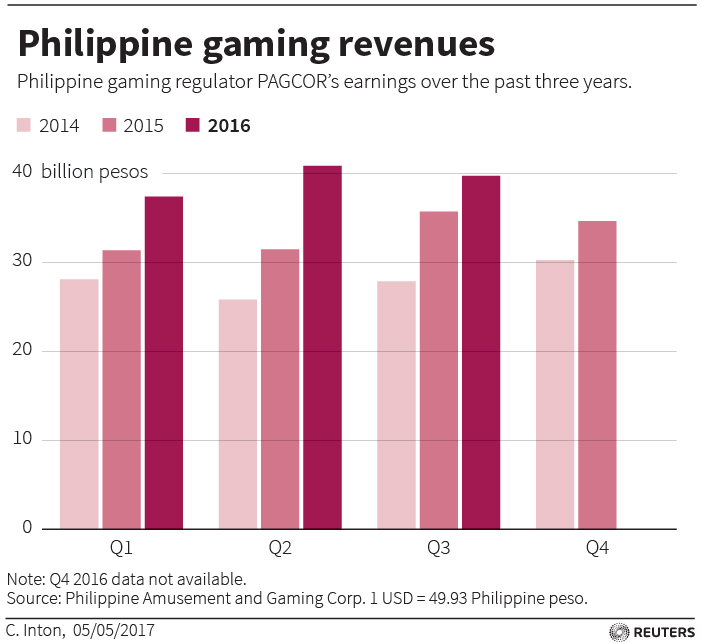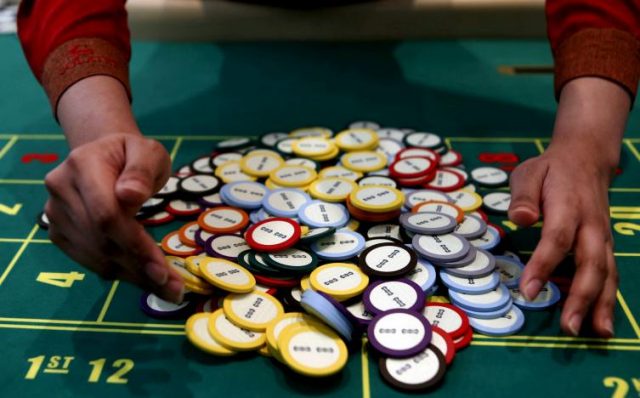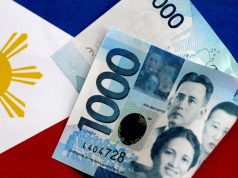MANILA/HONG KONG — China and the Philippines have joined forces to tackle illegal gambling, part of Beijing’s broader campaign to curb illicit capital outflows and a pledge by Manila to weed out unscrupulous operators from the country’s booming gaming industry.
The coordinated crackdown comes amid warming ties between Chinese President Xi Jinping and his Philippine counterpart Rodrigo Duterte, who has made illegal gambling the third front in his all-out war on crime, after drugs and corruption.
In their first joint exercise, Philippine and Chinese authorities cracked a transnational cyber gambling operation in April, shutting four illegal websites run out of the Philippines, arresting 99 people and freezing more than 1,000 bank accounts, China’s Public Security Bureau said.
Martini Cruz, chief of the Philippines National Bureau of Investigation’s cyber-crime division, told Reuters authorities were preparing further raids in May targeting illegal betting and online fraud originating in the Philippines and targeted at Chinese gamblers.
“We have been visited by Chinese police to crack down on these illegal gambling operators. They are also targeting possible fugitives who have made our country a sanctuary,” Cruz said.
So far, the crackdown has not targeted proxy betting, which is permitted in licensed casinos in the Philippines and has contributed to a boom in VIP revenues. Casinos in the country raked in nearly $3 billion in overall revenue last year.

The practice, in which a gambler outside the casino gives instructions to an agent via a live stream or online platform, allows people to bet anonymously and can allow players to escape the attention of authorities in their home countries.
Industry executives have said increased scrutiny could impact the lucrative proxy business in the Philippines particularly if it continues to ramp up ahead of the official opening of Japanese slot machine tycoon Kazuo Okada’s new $2.4-billion casino in Manila in July.
Proxy gambling
While proxy gambling is banned in Singapore and in Macau, the world’s largest gambling hub, it operates in a legal gray area in the Philippines and officials tend to tread cautiously when discussing the subject.
Andrea Domingo, the head of the Philippine Amusement and Gaming Corp., told Reuters she was not familiar with proxy betting.
“It is allowed in the casinos. I am not very conversant about it,” she said.
Chinese law forbids citizens from gambling online and at home. The Public Security Bureau has made repeated statements since March that transnational cyber gambling is harmful to the country’s economic security, image and stability.
Yet proxy betting is growing at such a pace in the Philippines that Suncity, the top junket operator bringing in high rollers from China, told Reuters in April that 80 percent of its business comes from proxy gambling and 20 percent from customers traveling to casinos for live table games.
Ben Lee, managing partner of IGAMIX Management and Consulting in Macau, said the latest directives this year from China were clear warning signs.
“China warning specifically that they would crack down again on foreign casinos should be heeded by all, especially those operating in the online space,” he said.
The proxy business in the Philippines is mainly facilitated by Macau junket operators who bring high rollers into the casinos’ opulent VIP parlors, either in person or via proxies. The junkets take on the risk for casinos, settling all credit and debt for the players in Macau, Hong Kong and China via their own internal banking networks.
In a VIP area in a Manila casino, Chinese and Korean nationals wearing earpieces shuffle from table to table after a series of bets, carrying rectangular white plastic trays containing gaming chips and smartphones.
A Macau-based executive whose company operates proxy gambling in the Philippines said there was little concern on the ground in Manila as the practice is licensed by PAGCOR.
“To play the game in China is legal online, it is not happening in China,” he said, explaining that the casinos install video screening so punters can see the play.
For now, proxy gambling continues to boost the VIP coffers in the Philippines with mega casinos Solaire and City of Dreams reporting double digit VIP volume growth in the first quarter this year. The casinos do not report proxy betting figures.
However, executives in Macau familiar with the VIP boom in the Chinese territory prior to Xi’s crackdown on corruption and tighter junket regulation cautioned against relying too strongly on the method.
“Proxy betting in the Philippines is a ripe target for China,” said a senior casino executive based in Macau who was not allowed to be named due to company policy.










